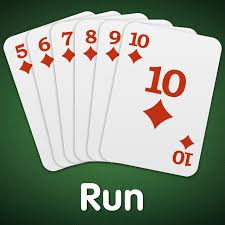Rummy Regle is a traditional version of the Rummy card game, distinguished by its elegant and straightforward rules. The game is known for its classic approach, focusing on forming sets and sequences with a standard deck of cards. Whether played casually with friends or in competitive settings, Rummy Regle offers a satisfying experience for players of all skill levels.
Basic Rules of Rummy Regle
Objective
The primary objective in Rummy Regle is to be the first player to arrange all the cards in your hand into valid sets and sequences. A set consists of three or four cards of the same rank but different suits, while a sequence comprises three or more consecutive cards of the same suit.
Setup
- Deck: Rummy Regle is played with one standard deck of 52 cards. Some variations may include jokers as wild cards, but the basic game uses only the standard deck.
- Dealing: Each player is dealt 10 cards if there are two players or 7 cards if there are three or more players. The remaining cards form the draw pile, and one card is placed face-up to start the discard pile.
Gameplay
- Turn Sequence: Players take turns in a clockwise direction. On a player’s turn, they draw a card from either the draw pile or the discard pile and then discard one card from their hand.
- Forming Sets and Sequences: Players aim to form valid sets and sequences from the cards in their hand. A valid hand must include at least one pure sequence (a sequence without jokers).
- Declaring: Once a player arranges all their cards into valid sets and sequences, they can declare. The other players then reveal their hands to determine the winner of the round.
Scoring
In Rummy Regle, scoring is based on the cards left in the losing players’ hands after a declaration. Face cards (King, Queen, Jack) are worth 10 points each, aces are worth 1 point, and numbered cards are worth their face value. The player with the lowest score after a predetermined number of rounds is declared the winner.
Strategies for Rummy Regle
Mastering Rummy Regle requires a blend of skillful play and strategic thinking. Here are some strategies to enhance your game:
- Form a Pure Sequence Early: A pure sequence is crucial for a valid declaration. Prioritize forming one as soon as possible to ensure a solid base for your hand.
- Manage High-Value Cards: High-value cards, especially face cards, can significantly increase your score if left unarranged. Discard these cards early to minimize risk.
- Watch Your Opponents: Pay attention to the cards your opponents pick and discard. This can provide valuable clues about their hands and help you make informed decisions.
- Utilize Jokers Wisely: If jokers are used, they are highly versatile and can help complete difficult sets or sequences. Use them strategically to maximize their value.
- Keep Your Hand Organized: Regularly arrange and rearrange your cards to spot potential sets and sequences. An organized hand allows for quicker decision-making and reduces errors.
The Appeal of Rummy Regle
Rummy Regle’s enduring appeal lies in its simplicity and strategic depth. The game is accessible to new players while offering enough complexity to keep experienced players engaged. Its blend of luck and strategy ensures that each game is unique and exciting.
Moreover, Rummy Regle fosters social interaction and provides a fun, competitive environment. Whether played at family gatherings or in more formal settings, the game encourages players to use their wits and engage with others in a meaningful way.
Conclusion
Rummy Regle stands as a testament to the timeless appeal of classic card games. Its elegant rules and strategic elements make it a favorite among players of all ages and skill levels. As you shuffle the deck and deal the cards, remember that Rummy Regle is more than just a game—it’s a classic tradition that brings people together and offers a rich, enjoyable experience. So gather your friends, embrace the elegance of Rummy Regle, and enjoy the endless fun that this classic game has to offer.




